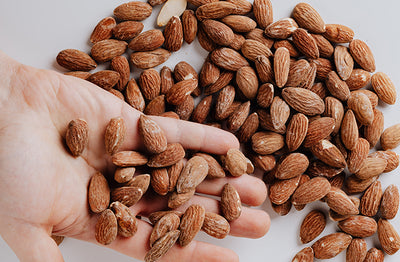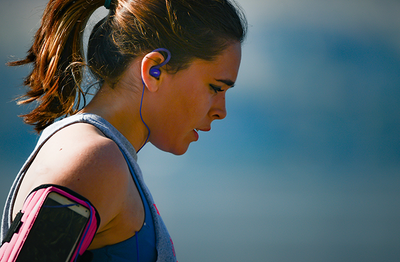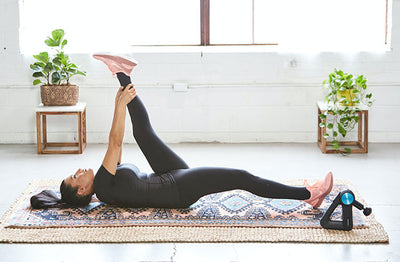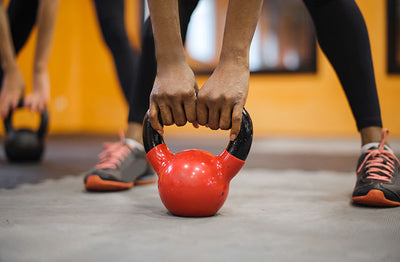Time will have it’s way with us as the years go by. A grey hair here, a mysterious ache there, it’s all part of getting older, something that we can’t avoid. Yet if we can’t refuse these gifts from Father Time, we can at least make sure to minimise them.
As we get older, our bodies become less efficient. You take longer to heal, activities that you once found a challenge are much more difficult, and can mean days or weeks of pain afterwards. It becomes harder to get fit, which means we lose more vitality, starting a vicious spiral. While it’s more difficult, it’s far from impossible. While you may look enviously at the twenty-somethings who are able to eat burgers and fries while still looking fit and healthy, what you lack in youth you can make up for in determination and application!
Getting fit in your forties is hard work, no one is arguing that point, but it has massive benefits to your quality of life, your career options and your general zest for life. Here are ten points to remember:
1) Eat well.
Diet is massively important to people over forty. While you may have been able to eat what you wanted in your twenties, in your forties that comes back to haunt you. Every errant kilojoule finds a way to stick to your body in ways you don’t like. Every missing nutrient means you feel that little less energetic. There are many articles on dieting out there, some say you should plan your meals ahead, but who really has time for that? It really is just a matter of finding what works for your particular situation. As a general rule, it should include eating more unprocessed food, less fat and making sure you’re getting the nutrients your body needs. That may involve adding multivitamins or
protein supplements to your diet, in which case, feel free to ask one of our staff for the best supplement for your needs.
2) Get a trainer.
You’re going to need help, and a trainer will be there to do it. Whether you want to do a gym session, or just a run in the park, having a personal trainer to take you through a good warm-up and keep an eye on you is vital to getting your fitness on track. They will also help you to develop a program for long term results. Plus, if you’re paying someone, it’s much less likely that you’ll decide to give it a miss after a hard day at work.
3) Get a check-up.
Pay your doctor a visit. It could be that you’re lacking a particular nutrient, and without it, your goals will be that much harder to achieve.
Testosterone is especially important to
building muscle mass, and it’s much more likely that your levels will have dropped once you hit forty. Addressing this can mean you start with more energy than you have had for a long time.
4) Know your limits.
You’re not going to get it all done in a week. Or a month. Or probably even a year. So going out there and exercising like a madman will likely just end up with you injuring yourself. Build up to the big stuff. Push yourself, but when you feel those tell-tale twinges that warn you of impending injury, stop and reassess.
5) Make your health a priority.
Your health matters, so treat it like that. Any time you’re forced to choose between working towards your health goal, picture yourself as you want to be, and then think about what you’re about to do. Is it really something you need to do more than your training? If so, then so be it, but otherwise you can put it on the back burner and get yourself moving!
6) Deal with your setbacks.
You’re probably going to feel like quitting at some time. You’ll be sore, tired and probably have grabbed a burger from a store nearby for lunch. It will happen. This does not mean that it’s all wrecked, you don’t drive from Melbourne to Perth, take a wrong turn near Adelaide and decide to go home, you just get back on the road, point the car in the right direction and keep on going! You will be tired. You will skip a class, but what you must not do is give up.
7) Set realistic goals (and go get them).
If you’re over 40, you can probably put away that plan to play in the English Premier League. You might, however, be able to make an impact in the local master’s league. If that is your goal, work your way backwards from there, noting what you need to do along the way. You’ll need to improve a number of things, so list them and make a plan for doing it. Goals are great, but if there’s no plan for achieving them, they’re not really goals, they are dreams.
8) Keep it interesting.
You’re not a robot, so feel free to mix it up. If you’re enjoying your nightly gym sessions, feel free to keep them going, but not to the point that you get sick of it. Consider getting a night of an organised sport in there, or a swim one morning a week. You need to keep yourself engaged and focused. If you’re at the gym dreaming of what you did that day, rather than focusing on your form and getting the most from your exercise, you may not be getting the most out of your efforts, and could benefit from trying something else for a little while.
9) Join a team.
Having support around you in the form of a team can be a great way to stay motivated and enjoy your exercise. It’s also a great way to meet people with similar goals and see how they have gone about achieving them. You may have to give a few things a try before you find what is exactly right for you, but keep searching until you find it. There are sure to be sporting clubs catering to the semi-fit all the way through to those just starting out. Consider trying cycling, running, basketball, soccer, swimming or martial arts, all of them will likely have a club that would welcome someone who is looking to get fit and healthy, no matter their current fitness levels.
10) Keep it fun.
Maybe you’re someone who just loves that feeling of utter physical exhaustion to the point of mind numbing pain. Maybe you feel alive in those moments, but for the rest of us, when we’re in that level of pain, all we feel is that level of pain. In this case, you’ve got to make sure you keep your routine fun. It’s much easier to go for a run when you get to take in a sunrise on top of a hill at the midway point, or have a chat about how that basketball game went. Yes, being fit will give you a longer, more full life, but you still have to enjoy the journey. Find a way to push yourself AND enjoy it, and you’ll never feel like skipping another training session again.
Conclusion:
Getting fit once you get over 40 is hard, no one is saying otherwise, but it is achievable, and worth the effort. You’ll need
mental toughness and a bit of stubbornness, but the rewards are massive. More energy, better quality of life, vitality, enthusiasm and potentially meeting a whole new group of people who share your goals. So while it is difficult, it is something that you won’t regret doing once you feel the results.
Read More:















